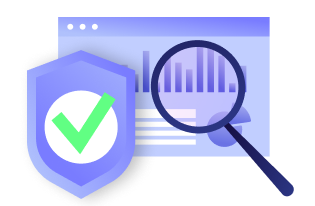As a small business owner, you value your customers. They drive your profits, after all. But they also give you something far more valuable: their trust. This is why potential data breaches can impact more than your company’s productivity and bottom line. A cybersecurity issue can mean you lose customers (and profits). Here’s how to protect your customer data—and your profits.
Recognize the Risk
Many small business owners assume that hackers only target bigger (and more profitable) businesses. But as Forbes explains, it’s more practical for hackers to target smaller businesses first. Infiltrating smaller companies is easier, and it also gives criminals practice in navigating the act.
Therefore, the first step in protecting your customers and information is recognizing that it’s at risk in the first place. Skipping essential security steps isn’t an option. If you neglect preventative measures, you could go out of business following a cybersecurity breach.
So, what can you do?
Take These Simple Preventative Steps
Fortunately, protecting your customers’ data starts with simple measures. First, limit your employees’ access to consumer account information. As much as you may trust your team, the more eyes on customer data, the higher the odds something will leak.
Second, require employees to use complex passwords. Authenticate each login to ensure no unwanted entry from phishers or hackers. Many brands today—such as Google—use two-factor authentication for a more secure online experience. Users must enter both a password and a secondary login credential such as a PIN, key fob, or even voice recognition.
Third, Inc. recommends deleting unused applications and accounts from company servers (and online). Even old data can put your organization at risk for scams and hacks, so remove whatever you can that isn’t currently in use.
These and other actions will help you stay compliant with rules and regulations that keep your customers safe. The GDPR, for example, requires that businesses that operate in Europe take every precaution necessary to ensure their clients’ information remains safe.
Get Serious About Cybersecurity
As IBM highlights, security breaches can cost your company around five percent of your yearly revenue—and that’s a conservative estimate. While initial steps to protect data are free or low-cost, it’s worth investing further in more serious measures against cybercrime.
You should already have firewalls on company networks and hardware for basic protection. But beyond the fundamentals, there are ways to get more serious about avoiding data breaches. Employing company-wide cybersecurity policies is an excellent start.
Training employees on how to identify phishing scams, for example, can cut down on breaches that result in a loss of productivity and security. Apart from training sessions for your entire team, you can also enact a cybersecurity action plan, featuring components outlined by Homeland Security and the Federal Communications Commission.
The Federal Trade Commission advises these steps for identifying and locking down consumer data:
- Identify what personal info you have on customers.
- Remove the data you do not need.
- Secure what you keep and use.
- Dispose of sensitive information correctly.
- Enact a cybersecurity plan.
Know When to Hire an Expert
If your head starts spinning with talk of cybersecurity and firewalls, it might be best to hire professionals. Especially if you are currently facing a breach, lack of an in-house IT staff means you’re on your own. In such scenarios, you can take assistance from cybersecurity companies.
From recovering data to restoring breaches in security measures, IT experts at data recovery know their stuff. Another expert worth hiring is a professional hacker. These experts can attempt to break through your network to identify where it’s vulnerable to attacks. You can find professional hackers and many other types of cybersecurity experts through online job platforms like Upwork. While it’s another expense, consider the tradeoff in productivity levels and determine whether hiring expert help is best for your business.
Investing in data loss prevention is also investing in your organization’s profits. After all, consumer perception has a huge impact on your operations. Most people opt to take their business elsewhere if a company they work with experiences a data breach. Because scams are everywhere, companies of all sizes need to recognize and defend against cybersecurity attacks. Your productivity and profitability depend on it.
Photo via Pixabay






